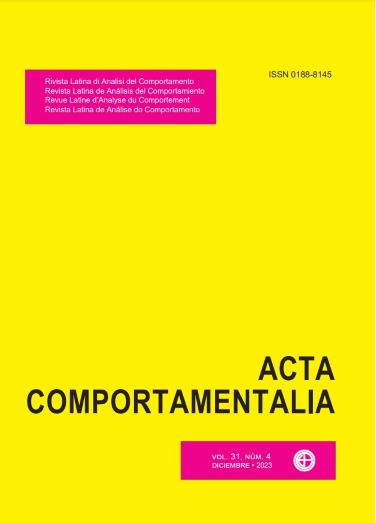Temporal Variations in Terms Referring to Psychological Processes: A Critical Review
DOI:
https://doi.org/10.32870/ac.v31i4.87202Keywords:
natural history, psychological processes, thesaurus, teaching of psychology, technical languageAbstract
The reconstruction of the natural history of psychological phenomena includes the identification of the uses of the terms and expressions that eventually refer to them, to find regularities in these uses. In this context, the aim of this work is to explore temporary variations in the meaning of some terms referring to psychological processes, to analyze their evolution in our language and offer a critical analysis on the convenience of configuring the disciplinary logical geography based on in them. To achieve this goal, we review the origin, use, and change in the use of the terms: emotion, motivation, sensation, perception, attention, comprehension, learning, intelligence, memory, and learning. From this analysis, it is possible to notice three critical elements in the establishment of a conceptual system to approach the analytical objects of psychology, namely: the metaphorical extension of the terms, their reification, and the semantic proximity between them. It is argued that these conditions do not allow a precise delimitation and identification of different phenomena or processes as differentiated analytical objects and that therefore it is not useful to refer to psychological processes.
Downloads
Downloads
Published
How to Cite
Issue
Section
License

<a rel="license" href="http://creativecommons.org/licenses/by-nc-sa/4.0/"><img alt="Licencia de Creative Commons" style="border-width:0" src="https://i.creativecommons.org/l/by-nc-sa/4.0/88x31.png" /></a><br />Este obra está bajo una <a rel="license" href="http://creativecommons.org/licenses/by-nc-sa/4.0/">licencia de Creative Commons Reconocimiento-NoComercial-CompartirIgual 4.0 Internacional</a>.






